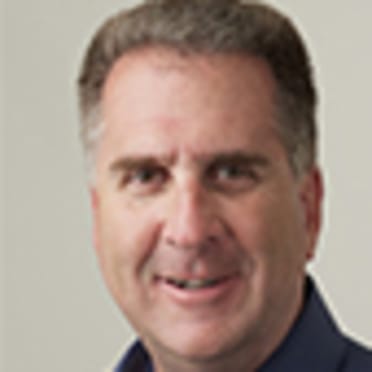JUPITER, Fla. -- Marlins prospects Connor Scott, from Tampa, Fla., and Jorge Guzman, a native of Santa Cruz in the Dominican Republic, seemingly grew up worlds apart.
They were raised speaking different languages in vastly different cultures. However, they now share a bond: Both are professional baseball players who project to be teammates within a few years.
As an organization, the Marlins are committed to tearing down any language barriers that could prevent their players from effectively communicating with each other.
That's why, by ownership's directive, the Marlins have expanded their player-education program to include initiatives to teach Spanish to English speakers in the system, and English to Spanish-speaking players and staff.
Scott, an outfielder rated by MLB Pipeline as Miami's No. 6 prospect, and Guzman, a right-handed pitcher and the team's No. 10 prospect, were paired up in February during the organization's annual Captain's Camp, an invitation-only leadership program.
On Valentine's Day, they were assigned to write each other a card, with a catch: It was not to be written in their native language. So Scott penned a card in Spanish, and Guzman reciprocated with his in English.
"It was just about how we were glad to get to know each other and can't wait to play together, all that stuff," Scott said. "I think the biggest thing the Marlins are preaching is leadership. Being better as a person off the field and on the field. The biggest thing for us is, if you want to be a leader, you have to be able to communicate, and be close with everyone."
The Marlins are the fourth MLB team (along with the Pirates, Yankees and Royals) to adopt a comprehensive education department, with curriculum including teaching players life skills and introducing them to new languages.
"In guiding the professional development of the Miami Marlins, a key goal for us is to be the first bilingual team in professional sports," said Emily Glass, the Marlins' education coordinator. "Having the opportunity to help lead the department that teaches our English speakers Spanish and guides our international players learning English is a lot of fun."
With about 42 percent of all the Marlins' players born outside the United States, the Marlins have made the education program an integral part of player development. It has the full support of chief executive officer Derek Jeter and vice president of player development and scouting Gary Denbo. Miami's president of baseball operations Michael Hill speaks English and Spanish fluently.
"What we're doing is unique,” Glass said. "The support we have from ownership and Derek Jeter and Gary Denbo and the leaders in our organization is unique in this game of tradition, and this game of long seasons and grinding."
Marlins right fielder Peter O'Brien, from Hialeah, Fla., grew up in a house where both Spanish and English were spoken regularly. O'Brien’s mother is from Cuba, and his father from Michigan. O'Brien was raised speaking Spanish around his mother and grandmother, who lives with the family, and English to his father.
On the field, O'Brien sees the importance of players speaking more than one language.
"When I was behind the plate full-time catching, it was a huge benefit," O'Brien said. "If you have a primarily Spanish-speaking starter on the mound, it's much easier to communicate. You guys are on the same page a little bit more. Otherwise, you might try to translate something or say something that he might not get. So, it's nice to be able to speak the same language and use the verbiage that is familiar and consistent to what he's thinking."
The Marlins have nine educators, who work with players at the Roger Dean Chevrolet Stadium complex in Jupiter, Fla., as well as other Minor League affiliates, including at the organization's academy in the Dominican Republic.
"During Captain's Camp, there was more individualized instruction, and more fun programming," Glass said. "We had our first annual Captain's Camp cooking competition, where teams of three had to compete to make the best chicken stir-fry."
The team of Scott, Guzman and infield prospect Osiris Johnson were winners of the Marlins' version of the TV cooking show "Chopped."
At Captain's Camp, language classes were held two or three days a week, with sessions lasting from 45 minutes to an hour.
"They'd teach us all the baseball terminology in Spanish, and some other things important to know, other little things you can do to better communicate," said catching prospect Nick Fortes, who was born in South Florida and previously played at the University of Mississippi.
The language classes and cooking are just two components under the education department's umbrella. Players also get instruction in topics such as goal-setting and professional development, media training and financial decision-making.
"What we've been able to establish here in the last year is a program with a lot of breadth, and a program that just serves our players," Glass said. "They have a myriad of needs. All students, all baseball players, all people don't have just one need. They don't only need to learn English. We all need [to learn] quite a few things."
Glass was mentored by Pirates education coordinator Mayu Fielding, now entering her 12th year overseeing the department in Pittsburgh. Glass grew up in Northern California playing baseball and softball. She has traveled the world, and is versed in English, Spanish and some Creole languages. There was a time she also spoke Japanese, but has lost most of it due to inactivity.
The Marlins saw the need for an expansive program, especially in a market like South Florida with its large Spanish-speaking population.
"Ages 16-23 is the population we are serving here," Glass said. "Think about what you have learned from ages 16-23. For me, that's basically everything. You're cooking for yourself for the first time. Leaving home for the first time. That's when you learn everything. That's the same [age] group of our players."
